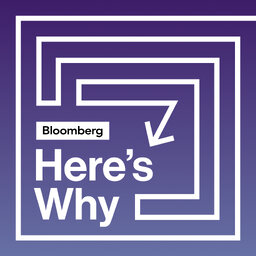Consumers Cruise as AI Looms over Labor
Bloomberg Opinion columnist Jonathan Levin parses through cruise data and says it presents further evidence that consumers are resilient. Conor Sen with Bloomberg Opinion also joins to discuss the threat artificial intelligence poses to jobs. Lisa Jarvis explains the health risks of loneliness and columnist Leonid Bershidsky also joins to talk about the war in Ukraine and Vladimir Putin's ambitions. Amy Morris hosts.
In 1 playlist(s)
Bloomberg Opinion
Deeper conversations on the week's most significant developments. Tune in and join in!Social links
Follow podcast
Recent clips

Introducing 'Here's Why' - Complex News Stories Explained
00:30

Airline Mergers and Restaurant Loyalty
35:20

Fossil Fuel Use and Drug Development
35:28
 Bloomberg Opinion
Bloomberg Opinion